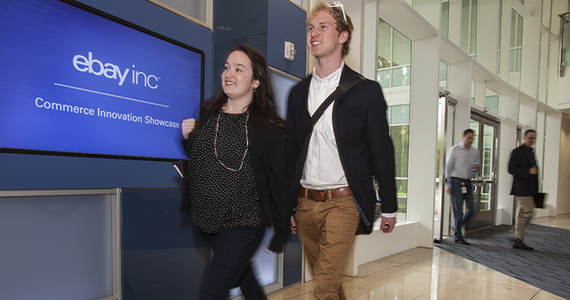Drexel University's Charles D. Close School of Entrepreneurship Launches Bachelor's Degree, Minors
With the launch of undergraduate degrees, the Close School becomes the first freestanding school of entrepreneurship in nation to offer its own degrees.
May 20, 2014
PHILADELPHIA, May 20, 2014
Drexel University’s Charles D. Close School of Entrepreneurship has announced the launching of a bachelor's degree program in entrepreneurship and innovation, as well as three entrepreneurship minors, including social entrepreneurship, health innovations and energy innovations.
With the launch of the BA in Entrepreneurship and Innovation, the Close School is the first freestanding school of entrepreneurship in the nation outside of a business school to offer its own degrees.
"In typical Drexel fashion, the launch of our undergraduate degree and minors represents a disruptive innovation in higher education," said Donna Marie De Carolis, founding dean of the Close School. "Our programs address a very real market demand — namely an increasingly competitive 21st century workforce that values initiative, independence and the intellectual dexterity to rethink old ways of doing things and invent new ones. We are preparing students to meet the job market on solid footing and to create their own opportunities."
The 181-credit BA in Entrepreneurship and Innovation emphasizes interdisciplinary coursework in collaboration with other Drexel colleges and schools, with a focus on training students to build entrepreneurial skills such as resilience, collaboration, and the ability to identify and evaluate new opportunities to manage the process of innovation.
"These skills are not only pertinent to launching new ventures, they are also essential to pursing innovation within established companies," said De Carolis.
 Members of the Close School's Entrepreneurship Living-Learning Community walk the halls at eBay headquarters during the ELLC's spring 2014 trip to Silicon Valley.
Members of the Close School's Entrepreneurship Living-Learning Community walk the halls at eBay headquarters during the ELLC's spring 2014 trip to Silicon Valley.
Each of the three, multidisciplinary, 24-credit entrepreneurship minors, which are available to all Drexel undergraduate students, explore some of the world's most pressing issues in health care, energy and social change. The minors allow students to supplement their chosen field of study with coursework that prepares them for new venture creation and entrepreneurial innovation within existing organizations.
In addition to the academic plan of study, the Close School offers co-curricular programs to complement its coursework, including an Entrepreneurship Living-Learning Community that allows like-minded freshmen to live in a residential environment dedicated to entrepreneurship programming, as well as an Entrepreneurship Co-op that pays qualified Drexel students from all academic disciplines to work for their own companies for six months. The Close School’s Baiada Institute supports these programs with an array of resources, including full-fledged company incubation, mentorship and other entrepreneurship-themed programming.
"Our goal is for the Close School to be a pathway to entrepreneurship for all Drexel students, from all colleges and majors," De Carolis said. "With the full support of Drexel President John Fry and the Charles and Barbara Close Foundation, the launch of our undergraduate major and minors solidifies Drexel’s commitment to entrepreneurship education and to the creation of an innovation ecosystem here in Philadelphia. We are one step closer to making Drexel the nation’s premiere hub for entrepreneurship education, research and thought leadership."
***
The Close School is the first freestanding school of entrepreneurship in the nation to offer an undergraduate degree and minors in entrepreneurship. Building on an outstanding foundation of curriculum, programming, and thought leadership at Drexel, the Close School is part of the expanded culture of entrepreneurship envisioned by the University’s strategic plan.
Drexel is the nation’s 14th largest private university and is ranked among the best national universities by U.S. News & World Report. Drexel is widely recognized for its focus on experiential learning through its co-operative education program and translational research initiatives, its commitment to cutting-edge academic technology and its growing enterprise of use-inspired research.